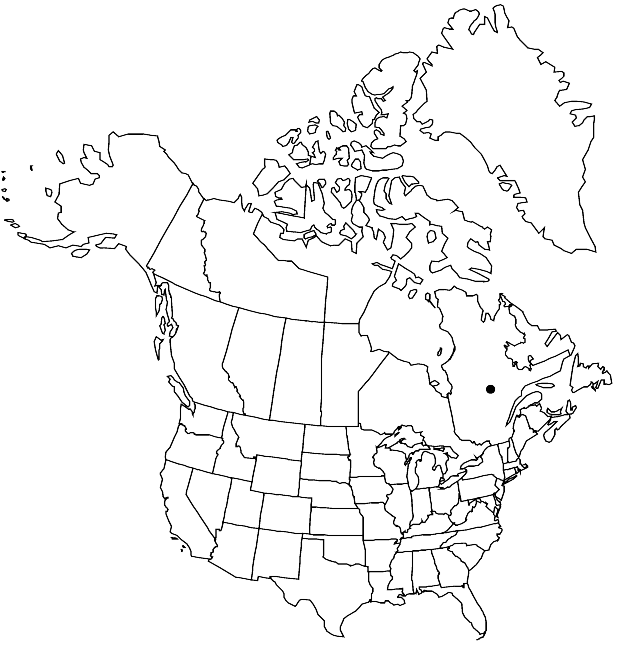Boechera quebecensis
Harvard Pap. Bot. 12: 246. 2007.
Biennials or perennials; short-lived; apomictic; caudex present or absent. Stems usually 1 per caudex branch, arising from center of rosette near ground surface, 1–4.5 dm, densely pubescent proximally, trichomes sessile, 2–4-rayed, 0.15–0.5 mm, glabrous distally. Basal leaves: blade oblanceolate, 5–15 mm wide, margins denticulate, ciliate proximally, trichomes (simple), to 1 mm, surfaces moderately pubescent, trichomes subsessile, (2- or) 3–7-rayed, 0.1–0.3 mm. Cauline leaves: 4–15, not concealing stem; blade auricles 1–3.5 mm, surfaces of distalmost leaves glabrous. Racemes 11–41-flowered, usually unbranched. Fruiting pedicels horizontal to slightly descending, curved to straight, 3–8(–14) mm, glabrous or with some subappressed, branched trichomes. Flowers divaricate at anthesis; sepals pubescent; petals white, 6–7 × 1–2 mm, glabrous; pollen spheroid. Fruits horizontal to slightly descending, not appressed to rachis, secund, straight, edges parallel, 3–6 cm × 1.5–2 mm; valves glabrous; ovules 56–94 per ovary. Seeds uniseriate, 1.2–1.5 × 1–1.3 mm; wing continuous, 0.1–0.15 mm wide.
Phenology: Flowering Jun–Jul.
Habitat: Calcareous rock outcrops and talus slopes
Elevation: 0-300 m
Distribution

Que.
Discussion
Morphological evidence suggests that Boechera quebecensis is an apomictic species that arose through hybridization between B. holboellii and B. stricta; it is most likely to be confused with B. grahamii (see M. D. Windham and I. A. Al-Shehbaz 2007b for detailed comparison).
Selected References
None.